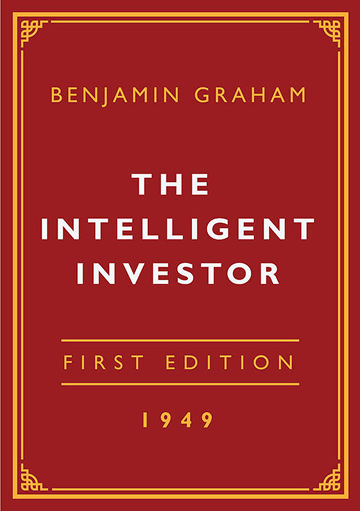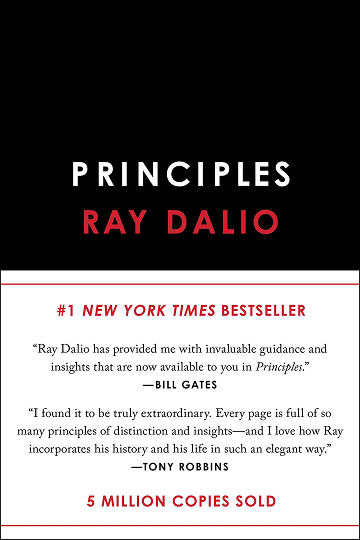
Warren Buffett Net Worth, Biography and Key Insights



Warren Buffett’s Profile Summary
|
Company
|
Berkshire Hathaway |
|---|---|
|
Position
|
Warren Buffett is the Chairman and CEO of Berkshire Hathaway, a position he has held since 1970 |
|
Source of wealth
|
Warren Buffett's wealth primarily derives from his position as CEO and Chairman of Berkshire Hathaway, and ownership stakes in a wide range of companies |
|
Also known as
|
Warren Buffett is also known as a philanthropist, co-founder of the Giving Pledge, and author of various articles and letters on investing and philanthropy. |
|
Age
|
94 |
|
Education
|
University of Nebraska - Bachelor of Science in Business Administration. Columbia Business School - Master of Science in Economics |
|
Citizenship
|
United States |
|
Residence
|
Omaha, Nebraska, USA |
|
Family
|
Warren Buffett's immediate family includes: Wives: Susan Buffett (deceased), Astrid Menks. Children: Susan Alice Buffett, Howard Graham Buffett, Peter Andrew Buffett. Siblings: Doris Buffett (deceased), Roberta Buffett |
|
Website, Social Media
|
https://www.berkshirehathaway.com/ |
Warren Buffett’s biography
Warren Edward Buffett, born on August 30, 1930, in Omaha, Nebraska, is one of the most renowned investors in the world, often referred to as the "Oracle of Omaha." He demonstrated an early interest in business and investing, purchasing his first stock at the age of 11. After earning a bachelor's degree in business administration from the University of Nebraska, he went on to obtain a master's in economics from Columbia University, where he studied under Benjamin Graham, a mentor who significantly influenced his investment philosophy. Buffett began his career in investment partnerships before taking the helm at Berkshire Hathaway in 1970. Under his leadership, the company transformed from a struggling textile manufacturer into a diversified holding company with substantial interests in various sectors, including insurance, utilities, and consumer goods. Buffett's investment strategy is characterized by a long-term value investing approach, focusing on companies with strong fundamentals and competitive advantages. His leadership has resulted in a staggering increase in Berkshire's stock price, with an overall gain of more than 5,500,000% since he took control.
-
How did Warren Buffett make money?
Warren Buffett, the billionaire and head of the investment conglomerate Berkshire Hathaway, is considered one of the most successful investors in history. His entrepreneurial journey began in his teens, when he used his first earnings to buy stocks. In 1956, Buffett founded the Buffett Partnership, within which he managed investors' capital using his strategy of deep analysis of undervalued companies. This fund became the basis for his future success.
A key stage in Buffett's career was the acquisition of the textile company Berkshire Hathaway in 1965. Initially, he planned to maintain its profile, but later abandoned textile production and focused on turning the company into an investment holding company. Berkshire Hathaway's main source of capital was insurance premiums accumulated by companies such as GEICO and General Re. Buffett invested these funds in the purchase of shares and stakes in various businesses.
Berkshire Hathaway owns large stakes in such giants as Apple (more than $150 billion), Coca-Cola, American Express and Bank of America. In addition, the company fully controls such enterprises as the BNSF Railway corporation, the battery manufacturer Duracell and the Dairy Queen restaurant chain. Berkshire Hathaway's revenue in 2022 was $282 billion, making it one of the most successful corporations in the world.
Buffett is also known for his approach to business acquisitions: he chooses companies with sustainable profits, reliable management and significant growth potential. This approach has allowed Berkshire Hathaway to turn into an empire with a market capitalization of more than $700 billion. Buffett's personal fortune exceeds $120 billion, making him one of the richest people in the world.
-
What is Warren Buffett net worth?
As of 2025, Warren Buffett’s net worth is estimated to be $153.4 B.
What is Warren Buffett also known as?
Warren Buffett has made significant contributions to philanthropy, notably through the Giving Pledge, which he co-founded with Bill and Melinda Gates in 2010. This initiative encourages billionaires to commit to giving away the majority of their wealth to charitable causes during their lifetimes or through their wills. Buffett's philanthropic focus areas include education and healthcare. He has directed substantial funds to initiatives aimed at improving educational opportunities for underserved communities and enhancing healthcare access globally. Buffett is recognized for his humility and straightforward approach to wealth management, often sharing his investment wisdom through letters to Berkshire Hathaway shareholders and public discussions. His down-to-earth lifestyle contrasts with the vast fortune he has amassed, making him a relatable figure in the world of finance and philanthropy
Prominent achievements of Warren Buffett
Recognized as "Person of the Year" by Time magazine. Pioneered the Giving Pledge, committing to donate the majority of his wealth to charity. His investments have contributed to Berkshire Hathaway becoming one of the largest companies in the world, with a peak market cap exceeding $700 billion. Authored the annual letters to Berkshire Hathaway shareholders, which are widely regarded as influential in the business world
What are Warren Buffett’s key insights?
Warren Buffett's business philosophy centers on several key principles: Value Investing: He advocates for investing in undervalued companies with strong fundamentals. Long-Term Focus: Buffett emphasizes the importance of patience and long-term perspectives in investing. Integrity and Trust: He stresses the value of honesty and building relationships based on trust. Continuous Learning: Buffett dedicates a significant portion of his day to reading, reflecting his belief in the importance of knowledge and self-improvement
Warren Buffett’s personal life
Susan Buffett: Warren's first wife, who was an active philanthropist and a singer, passed away in 2004. They had three children together. Astrid Menks: Warren's second wife, who he married in 2006. She was introduced to him by Susan and played a significant role in his life after Susan's passing. Children: Susan Alice Buffett: She is involved in various charitable organizations and has been married and divorced. Howard Graham Buffett: A businessman and philanthropist, he leads the Howard G. Buffett Foundation, focusing on food security and conservation. Peter Andrew Buffett: A musician and philanthropist, he co-chairs the NoVo Foundation, promoting social change and empowerment for women and indigenous communities
Useful insights
Fundamental principles of investing
As someone deeply immersed in the world of finance, I firmly believe that learning the fundamental principles of investing is the cornerstone of financial literacy. The books I recommend here have shaped modern investment strategies, offering timeless wisdom that can benefit both beginners and seasoned investors. These are not just texts, but essential tools to help you navigate the complexities of the financial markets with confidence and insight.
-
Benjamin Graham – "The Intelligent Investor"

-
Summary:
Written by one of the most influential investment thinkers, this book outlines the principles of value investing. Graham emphasizes the importance of analyzing a company’s intrinsic value, long-term investment strategies, and avoiding emotional decisions driven by market fluctuations. The book also discusses defensive investing, focusing on preservation of capital and minimizing risk.
-
Why read it:
This is a must-read for anyone looking to understand the core philosophy behind successful long-term investing. Graham’s principles influenced generations of investors, including Warren Buffett, making it an essential guide to navigating stock market risks with a focus on minimizing losses.
-
-
Ray Dalio – "Principles"

-
Summary:
Ray Dalio, founder of one of the world’s largest hedge funds, shares the life and work principles that led to his immense success. The book covers Dalio’s unique management and investment strategies, focusing on radical transparency, truth-seeking, and the importance of learning from mistakes. It also provides practical insights into organizational behavior and personal growth, making it valuable beyond just investing.
-
Why read it:
Dalio's "Principles" is a treasure trove of wisdom for investors and business leaders who wish to improve their decision-making. It’s a guide on how to align personal and professional life through well-defined, actionable rules.
-
Other profiles in category
Popular Financial Guides
Latest Financial News

Nvidia stock hits record $157 as AI demand accelerates chip rally

Tesla stock jumps 5% as deliveries top estimates and bullish momentum builds































































































































